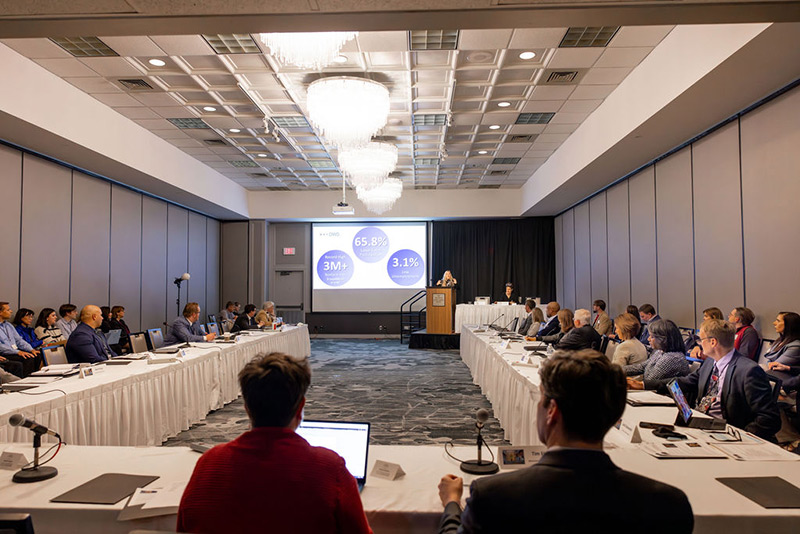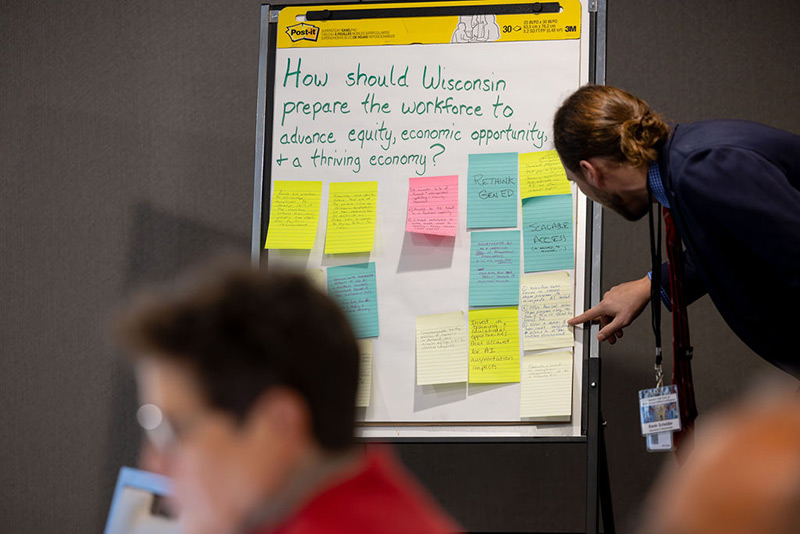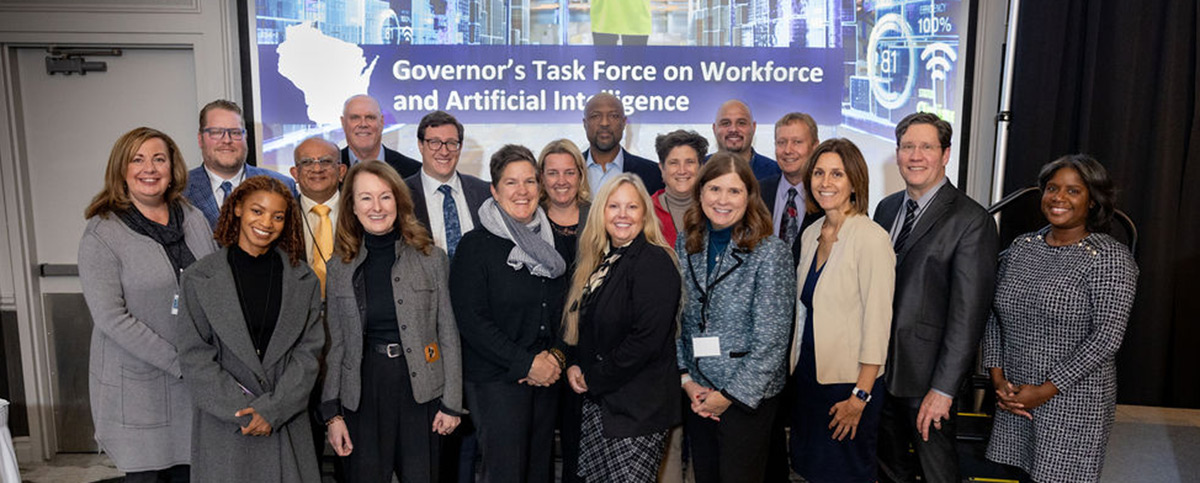Outdated or Unsupported Browser Detected
DWD's website uses the latest technology. This makes our site faster and easier to use across all devices. Unfortunatley, your browser is out of date and is not supported. An update is not required, but it is strongly recommended to improve your browsing experience. To update Internet Explorer to Microsoft Edge visit their website.

Tony Evers, Governor
Amy Pechacek, Secretary
Department of Workforce Development
Secretary's Office
201 E. Washington Avenue
P.O. Box 7946
Madison, WI 53707-7946
Telephone: (608) 266-3131
Fax: (608) 266-1784
Email: sec@dwd.wisconsin.gov
FOR IMMEDIATE RELEASE
Nov. 2, 2023
CONTACT: DWD Communications
CommunicationsOffice@dwd.wisconsin.gov
Task Force Members Envision Future with Tech-Savvy Workforce and Economy that Works for All
MADISON – Wisconsin leaders from business, agriculture, education, government, and nonprofit sectors set their sights on a future in which Wisconsin successfully harnesses Artificial Intelligence (AI) technologies to spur economic growth and create an economy that works for everyone.
Appointed by Gov. Tony Evers, members of the Governor's Task Force on Workforce and Artificial Intelligence (AI) convened in Madison this week for the group's first meeting. Administered by the Wisconsin Department of Workforce Development in coordination with the Wisconsin Department of Administration and Wisconsin Economic Development Corp., the task force aims to identify policies and investments that will continue to advance Wisconsin workers, employers, and job seekers through this technological transformation.
"The 30 task force members are bringing wisdom, experience, and a sense of optimism about a future in which AI can advance equity and economic opportunity through workforce training and employer innovation," said DWD Secretary Amy Pechacek, who serves as task force chair. "While the task force members acknowledged the apprehension many people have toward AI, they emphasized the need to invest in change management along with educational and training initiatives to drive responsible adoption of these technologies."
"Wisconsin manufacturers, medical practitioners, ag producers, and more are already employing AI to augment their workforce, improve efficiency, and in some cases, even save lives with better diagnostics and treatments," said WEDC CEO and Secretary Missy Hughes. "However, as the expert presenters from Google, Gartner, and Microsoft noted, we all have a lot to learn as these technologies evolve."
The task force members were asked to come up with an initial list of their priorities to help prepare Wisconsin's workforce to take advantage of the emerging technologies. The following is a synthesis of key ideas:
In an exercise designed to identify a vision for Wisconsin's future with AI, one of the task force subcommittees summed it up with this headline: "Wisconsin leverages AI to create an economy that works for everyone and provides AI opportunities to marginalized communities."
In closing remarks capping off the first task force meeting, DOA Secretary Kathy Blumenfeld encouraged task force members to approach their work with optimism, curiosity, and a healthy sense of skepticism to help separate fear and hype from reality.
"The Governor's Task Force on Workforce and Artificial Intelligence is off to a great start and we look forward to working with these leaders in the months ahead as they propose policy, budget, and educational solutions to help move our great state forward," Blumenfeld said.
The next full meeting of the Governor's Task Force on Workforce and Artificial Intelligence is set for Dec. 4 in Milwaukee. Keep up with task force activities by signing up for email notifications and learn more about the task force on our website. Find Gov. Evers' Executive Order #211 creating the task force online.
Photos by Sharon Vanorny



Wisconsin's Department of Workforce Development efficiently delivers effective and inclusive services to meet Wisconsin's diverse workforce needs now and for the future. The department advocates for and invests in the protection and economic advancement of all Wisconsin workers, employers, and job seekers through six divisions – Employment and Training, Vocational Rehabilitation, Unemployment Insurance, Equal Rights, Worker's Compensation, and Administrative Services. To keep up with DWD announcements and information, sign up for news releases and follow us on LinkedIn, Facebook, Instagram, X, and YouTube.